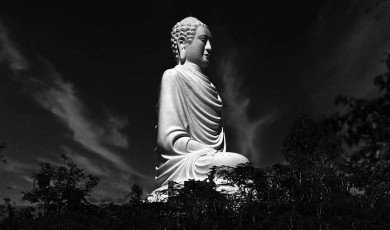How Modern Philosophers Are Redefining the Way We Think About Existence
By highlighting the overlooked contributions of early modern women philosophers, we gain a richer, more inclusive understanding of existence that continues to influence contemporary thought.
Introduction: Revisiting Existence through a New Philosophical Lens
The question of existence—what it means to be, how we ought to live, and why the cosmos is as it is—has driven philosophical inquiry for centuries. Yet, much of the history of philosophy, especially regarding existence, has often overlooked the pivotal contributions of women thinkers from the early modern period. Today, in the 21st century, modern philosophers are not only engaging with contemporary issues but also revisiting and amplifying the ideas of their intellectual foremothers.
This revival is more than an act of historical justice. By re-examining the work of early modern women philosophers such as Émilie Du Châtelet, Margaret Cavendish, Anne Conway, and Mary Astell, scholars are opening new pathways for exploring existence—bridging historical inquiry with today’s existential debates. Led by a generation of dedicated academics, including Professor Marcy P. Lascano, this modern movement is fundamentally redefining our philosophical landscape.
Main Research: Rediscovering Women’s Philosophical Visions of Existence
1. The Unseen Foundations: Early Modern Women Philosphers and Ontology
The study of existence, or ontology, underwent significant transformation during the early modern era. While canonical narratives have long celebrated the contributions of men such as Descartes, Spinoza, and Leibniz, the metaphysical investigations of women philosophers were equally innovative and far-reaching.
Margaret Cavendish, the Duchess of Newcastle, put forth a bold materialist philosophy in works like Observations upon Experimental Philosophy (1666), challenging both Cartesian dualism and mechanistic interpretations of nature. Cavendish argued that all of nature, including human consciousness, is one continuous substance—a view that prefigures many later developments in philosophy of mind. By treating existence as intimately intertwined with matter and creativity, Cavendish offered a radical alternative to the dominant metaphysical paradigms of her time.
Anne Conway advanced a unique form of vitalistic monism that rejected the hard boundaries between spirit and matter found in most early modern frameworks. Her Principles of the Most Ancient and Modern Philosophy envisioned existence as dynamic and interconnected, governed by compassion and the possibility of transformation. Conway’s metaphysics anticipated ecological and process-oriented philosophies that are central to current re-evaluations of existence in light of environmental and ethical concerns.
2. Existence, Knowledge, and the Self: The Epistemic Revolution
A core concern for early modern philosophers was the relationship between existence and knowledge. How can we know that anything—including ourselves—exists? For many women philosophers, this question had sharp social and personal resonance, as their intellectual agency was frequently doubted or denied.
Mary Astell is widely regarded as one of the first English feminists. In A Serious Proposal to the Ladies (1694), she addressed the challenges women faced in pursuing knowledge, arguing that education and rational inquiry were not just privileges for men, but integral aspects of human existence for all. Through her advocacy, Astell repositioned the question of existence as inseparable from one’s capacity and right to think, to reason, and to educate oneself.
Émilie Du Châtelet, a brilliant mathematician and physicist, dramatically shifted understandings of existence through her interpretation of Leibnizian metaphysics and her original contributions to the philosophy of science. Her magnum opus, Foundations of Physics (Institutions de Physique, 1740), explored the nature of matter, energy, and the underlying principles that order the universe. By making scientific discovery central to metaphysical arguments about existence, Du Châtelet paved the way for a more integrated vision of philosophy and science, emphasizing the dynamic, ever-evolving nature of being.
3. Modern Reclamation: The Digital Archive and Intersectional Revisionism
The contemporary movement to recover, reinterpret, and republish the works of early modern women philosophers is propelled by cutting-edge scholarship and digital technology. Projects spearheaded by Professor Marcy P. Lascano and others are creating accessible translation-services">online archives, translation efforts, and new curricula that bring these thinkers into mainstream philosophical education.
This reclamation is not simply about inclusion or historical accuracy. It is fundamentally about expanding our conceptions of what existence entails. For example, by embracing Astell’s emphasis on education as necessary for true existence, or Cavendish’s vision of a living, interconnected cosmos, contemporary philosophers are reframing existential debates around issues like gender equity, relationality, and the role of community in shaping the self.
Further, the intersectional approach of today’s scholars highlights how early modern women’s lived experiences—in terms of gender, class, religion, and nationality—informed their philosophical conceptions of existence. Their theories, often forged in the face of exclusion, resonate powerfully with contemporary existential questions about identity, agency, and meaning.
4. Bridging Past and Present: Contemporary Philosophy and Early Modern Insights
Modern philosophers are increasingly reliant on the work of their early modern forbears to chart new directions in existential thought. Contemporary existentialism, feminist philosophy, and even analytic metaphysics are all enriched by the rediscovery of historical perspectives that were previously suppressed or neglected.
The recognition of women’s foundational contributions changes how philosophy is taught and understood. Curricula now include primary texts by early modern women philosophers, and their ideas influence debates about consciousness, embodiment, and the ethics of existence. For instance, the process-oriented ontologies of Cavendish and Conway are informing current discussions about non-human life and ecological interdependence. Meanwhile, Astell and Du Châtelet’s insistence on intellectual agency and scientific engagement provide models for contemporary efforts to democratize philosophical practice and inquiry.
Conclusion: Redefining Existence for the 21st Century and Beyond
As modern philosophers revisit the works of early modern women thinkers, they are not merely filling gaps in the historical record. They are reimagining the boundaries of existence itself. The perspectives of Cavendish, Conway, Astell, and Du Châtelet have become vital resources for anyone seeking to understand what it means to exist in a world marked by complexity, diversity, and change.
The ongoing efforts to center early modern women in philosophical discussions are a call to reconsider not only who gets to define the core questions of existence, but also what those questions can include. By tracing the interplay between historical insights and contemporary debates, we move toward a more inclusive and dynamic philosophy—one that acknowledges our shared histories and imagines bold new futures.
Our mission on this platform is to celebrate the legacy, illuminate the insights, and carry forward the spirit of early modern women philosophers. In doing so, we embrace the possibility that existence—our own and that of the world around us—can be understood with greater depth, empathy, and creativity. As we continue this journey, we invite scholars, students, and thinkers alike to join us in redefining the way we think about existence, inspired by voices that have too often remained in the shadows but are now, finally, stepping into the light.








